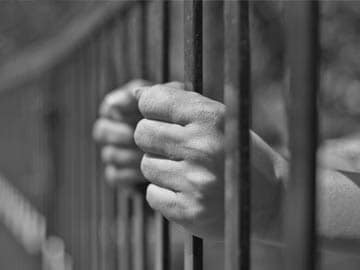
Representational Image
Dhaka, Bangladesh:
Bangladesh's Supreme Court on Wednesday commuted to life imprisonment a death sentence handed to a top Islamist leader convicted of war crimes during the country's war of liberation in 1971, the prosecution said.
The initial verdict last year against Delawar Hossain Sayedee, a leader of the country's main Islamist party, the Jamaat-e-Islami, had sparked off violent protests in which 60 people were killed.
Sayedee, 73, appealed against the decision by a war crimes tribunal over crimes of arson, looting, murder and rape, and the top court on Wednesday ordered that he spend the rest of his life in prison.
It was a sad day for Bangladesh, Attorney General Mahbubey Alam told reporters.
Bangladesh was formerly East Pakistan, at the end of British colonial rule in 1947. It broke away to form an independent nation after a war in 1971 between Bangladeshi nationalists, backed by India, and Pakistani forces.
About three million people were killed in the war.
Some factions in Bangladesh opposed the break-up with Pakistan, and Sayedee's grouping, the Jamaat-e-Islami, was among them. Its leaders have denied involvement in war crimes.
Ahead of Wednesday's decision, Bangladesh beefed up police patrols around the Supreme Court building in the capital, Dhaka, and deployed paramilitary troops in Sayedee's southern hometown.
Sayedee's death sentence last year prompted thousands of his party's activists to swarm the streets and attack police with crude bombs, swords and sticks.
The war crimes tribunals have angered Islamists who call them a politically motivated attempt by Prime Minister Sheikh Hasina to persecute the leadership of Jamaat-e-Islami, a key part of the opposition coalition.
The initial verdict last year against Delawar Hossain Sayedee, a leader of the country's main Islamist party, the Jamaat-e-Islami, had sparked off violent protests in which 60 people were killed.
Sayedee, 73, appealed against the decision by a war crimes tribunal over crimes of arson, looting, murder and rape, and the top court on Wednesday ordered that he spend the rest of his life in prison.
It was a sad day for Bangladesh, Attorney General Mahbubey Alam told reporters.
Bangladesh was formerly East Pakistan, at the end of British colonial rule in 1947. It broke away to form an independent nation after a war in 1971 between Bangladeshi nationalists, backed by India, and Pakistani forces.
About three million people were killed in the war.
Some factions in Bangladesh opposed the break-up with Pakistan, and Sayedee's grouping, the Jamaat-e-Islami, was among them. Its leaders have denied involvement in war crimes.
Ahead of Wednesday's decision, Bangladesh beefed up police patrols around the Supreme Court building in the capital, Dhaka, and deployed paramilitary troops in Sayedee's southern hometown.
Sayedee's death sentence last year prompted thousands of his party's activists to swarm the streets and attack police with crude bombs, swords and sticks.
The war crimes tribunals have angered Islamists who call them a politically motivated attempt by Prime Minister Sheikh Hasina to persecute the leadership of Jamaat-e-Islami, a key part of the opposition coalition.
© Thomson Reuters 2014
Track Latest News Live on NDTV.com and get news updates from India and around the world

